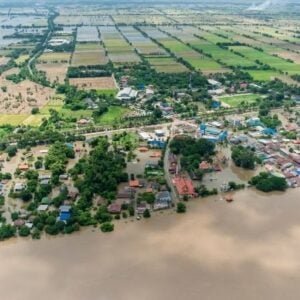The United Nations has issued a warning that Syria’s fragile gains are at risk due to foreign military action, political exclusion, and dwindling resources. UN Special Envoy Geir Pedersen, who announced his resignation during the meeting, described the interim authorities in Damascus as inheriting not only the ruins of destroyed buildings but also a deeply damaged social fabric, decayed institutions, and a hollowed-out economy. He emphasized that Syria’s successful transition depends on political stability, inclusivity, and international support aligned with the country’s needs. Pedersen urged the international community to support Syria while standing against foreign intervention, stressing that the state must act for all its citizens in practice, not just in principle.
Pedersen called for respect for Syria’s sovereignty and territorial integrity amid ongoing external military actions, including Israeli strikes. He stressed that security concerns must be resolved diplomatically, warning that mishandling them could leave Syria “indefinitely gridlocked” and at risk of renewed conflict. He pointed to the Druze region of Sweida, where a ceasefire has largely held since July, and welcomed a roadmap agreed with Jordan and the United States to address accountability, humanitarian access, and reconciliation. However, he cautioned that fears within the Druze community and reports of abuses in Damascus, Sweida, and coastal areas must be addressed through dialogue and adherence to international standards.
The humanitarian crisis in Syria remains severe, with over 70% of the population requiring aid. Nine million people face acute food insecurity, seven million remain internally displaced, and four million are refugees abroad. Despite these challenges, UN Emergency Relief Coordinator Tom Fletcher highlighted signs of progress, including improved access to previously unreachable communities, monthly food assistance for one million people, and subsidized bread for two million. Since December, nearly 900,000 refugees and 1.9 million internally displaced individuals have returned to their communities, although many face destroyed homes, insecurity, and a lack of jobs.
Funding gaps pose a major threat to these humanitarian gains. The UN’s appeal for Syria is only 18% funded, forcing closures of hospitals, safe spaces for women, and community centers. Fletcher warned that these shortfalls limit the expansion of operations and reduce support for vulnerable populations. Both Pedersen and Fletcher emphasized that Syria’s fragile progress could easily unravel if challenges are mishandled, but with genuine negotiation, bold compromise, and sustained international support, unity and recovery are possible. They urged Member States to preserve stability, fully fund humanitarian efforts, and enable Syrian-led recovery, envisioning a future where emergency operations are scaled down not due to funding cuts but because of strategic investment in Syria’s reconstruction.







